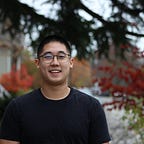Fostering our AI Children
On June 29th 2018, the first ever US-China AI Tech Summit took place in Silicon Valley. The event was co-hosted by The AI Alliance of Silicon Valley, The Future Society, and China’s AI Industry Alliance. With Apple Co-Founder Steve Wozniak, Baidu Product Architect Derek Zu, and many other experts in the tech and AI industry, the summit provided an open forum to discuss some of the major challenges associated with the pace of AI development across various industries.
Myself and three other members of the McGill AI Society were fortunate enough to receive a special invitation to the conference. From self-driving cars, healthcare, and robotics to fintech, law, and enterprise, we had the opportunity to observe a series of panel discussions about different sectors of AI. These discussions revealed the need for all nations to work together in order to accomplish universal goals in artificial intelligence, including the need to develop AI with the public’s best interests in mind.
In order to have discussions on the future of AI development, Dekai Wu, an AI professor from the Hong Kong University of Science and Technology, encouraged us to consider the evolution of “AI children” — a virtual descendant of ourselves that we are building online. A virtual descendant that, just like our children, will remember everything we taught them through our actions. Every post that we like on social media shows them our approval on the subject matter. Every message we send to someone, whether it’d be negative or positive, teaches them our perspective on what we think is appropriate to communicate. Every search that we make reveals to them our deeper thoughts and curiosity. With every move we take, we are unknowingly fostering a virtual descendant of ourselves — the virtual descendant in what Dekai referred to as our “AI children”. As a result, these “AI children” are bringing us the ads that we see on social media, the suggestions that appear in our searches, and the words that our messages auto correct to. In short, these “AI children” are continually sharing who we are as individuals to the world without our control or sometimes consent.
Just like real children, what we have already taught our “AI children” up to this point is difficult to revert. Rather, we can only move forward to ensure that we continue to grow our “AI children” in the same way that we would want to raise our own kids. In other words, we should ensure that every action we make online aligns with what we believe to be appropriate, and what we would allow our own children to do.
Thus, envisioning the future of AI can be likened to how we plan to raise our own kids. Instead of solving the problems when they arise, we should consider potential policies, public response, and other implications that the building of such technologies might entail. While this is not easy to accomplish — especially with innovation and the need to solve technical challenges at the forefront of development — the fact that these concerns were brought up by top leaders in the industry demonstrate an increased awareness and commitment to the responsibility of developing AI. Moreover, it was extremely humbling to see industry leaders openly discuss their views on the industry and their commitment towards the future of AI.
While many assume that AI innovation is a competition among companies and a race among nations, there was a surprising amount of mutual agreement at the summit that the only way for this industry to succeed — is to work together. Not only was there agreement to work together in terms of sharing knowledge and data, it was also agreed upon that we must work together to ensure that AI technology is developed for the greater good of society.
The US-China AI Tech Summit was a very insightful experience, which made us think deeply about how we are using AI to shape the future of the world. As exciting as it is to be in the center of AI development, the summit also served as a stark reminder of our shared responsibility for the ethical development of AI for all of humankind. As members of the McGill AI Society, we are committed to this responsibility and we hope that you are too.
John Wu
Co President
McGill AI Society
